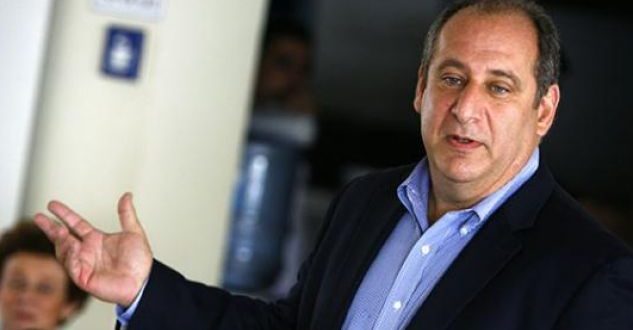Hold leaders accountable for Sudan’s problems
By David L. Phillips
Lawmakers on Capitol Hill disagree on most foreign policy issues, such as support for Ukraine and a way forward in Gaza. They do agree, however, that the Biden administration’s approach to Sudan is failing. Ranking member of the Senate Foreign Relations Committee, Senator Jim Risch (R-Idaho) and chairman of the House Foreign Affairs Committee, Mike McCaul (R-Texas) recently released a statement lamenting ongoing atrocities and calling for the United States to “engage with a broader array of regional and international partners, especially forging significant partnerships with African leaders who are dedicated to establishing a peaceful, civilian-led future in Sudan.”
US-Sudan policy is a failure. Washington focused on countering Islamism and aligned with the secular elite. The Forces for Freedom and Change had good intentions but lacked influence with communities across the country. The US was distracted from events in Sudan by its breakup with South Sudan. Washington relied on UN peacekeeping missions – UNAMID and UNITAMS – which fell short of expectations.
When civil war erupted, the US turned to Saudi Arabia as a diplomatic partner to resolve the conflict between the Sudanese Armed Forces (SAA) led by General al-Burhan and the Rapid Support Forces (RSF) of Lieutenant General Mohammed Hamdan (Hemeti). Mediation through the “Jeddah process” went nowhere.
The civil war has been going on for the past seven months. About 4.5 million people have been displaced and 9,000 killed. The fighting threatens to destabilize front-line states, with fighters and civilians fleeing to Chad, Ethiopia, and South Sudan.
Sudan is well on the way to being divided with Hemeti dominant in the West and Burhan hunkering down in Port Sudan in the East. It resembles Libya’s split between two rival armies backed by foreign patrons. In the worst case, Sudan could disintegrate into a Somalia-like situation with violent conflict between well-armed local militias erupting across the country.
Conflict creates ideal conditions for mineral exploitation. Gold from Darfur is sent to Dubai from where it is transported by the Wagner Group to Russia. Uranium, cobalt and lithium projects are in the works.
Rische and McCaul correctly call for international engagement. The most obvious step would be an international peacekeeping force under Article VII of the UN Charter. But Russia is a self-interested party, which would use its veto with the UN Security Council to block all necessary measures.
The optics of an African-led initiative would be better. IGAD, the Intergovernmental Authority on Development, is a partnership of 8 African countries that aims to promote regional peace and economic cooperation. However, it is roiled by division. The Jeddah process, facilitated by Saudi Arabia, was launched by Donald Trump and continued by President Joe Biden. This too has been ineffective.
The United Arab Emirates (UAE) contributes to tensions. The UAE has been bankrolling the RSF and using Chad as a staging ground for the re-supply of weapons to the RSF. US missiles transferred to the UAE have ended up in the RSF’s hands.
Diplomacy has historically been led by the United States, the United Kingdom and Norway. This troika should be reactivated to lead the mediation. A “contact group” could include Egypt, Saudi Arabia and the UAE. Their involvement would serve as a fig leaf creating the impression of a locally led process. A Sudanese-led civil society task force should be appointed as a counterpart for the troika’s mediation.
Though Burhan and Hemeti are not equally responsible for Sudan’s tragedy, they should both be disqualified from future leadership and encouraged to leave Sudan.
To encourage Burhan and Hemeti’s exile, each member of the troika should issue simultaneous statements denouncing Burhan and Hemeti for their crimes and calling for their arrests. The warrants would be referred to INTERPOL, enabling international law enforcement.
If incentives don’t compel Burhan and Hemeti to leave the country, punitive measures may be more effective. Banning international travel by Burhan and Hemeti, including restrictions on travel by their family members, would be an effective coercive measure. Ill-gotten assets could be sanctioned and seized.
Sudanese civil society must have a role. Traditional elders, women’s groups and political parties are suitable peacebuilding partners. For example, women’s cooperatives in Darfur harvest acacia and could incentivize conflict-affected communities. Consolidating peace starts at the grassroots.
The RSF and SAF have a deep bench whose rank and file have also committed crimes. Rather than prosecute foot soldiers, leaders should be held responsible. “Name and shame” could drive a wedge between the leaders and their militia members. International donors should support a security sector reform (SSR) and a program of disarmament, demobilization and reintegration (DDR).
From Omer al-Bashir to the present, Sudan’s problems are the result of corrupt and ineffective leadership. Peacemaking efforts should focus on individuals, not institutions. Sudan has an active and capable civil society, which could function as a technocratic committee guiding the country. Debt relief from international financial institutions should be calibrated to progress with civilian and democratic government.
A rotting fish stinks from the head down. Burhan and Hemeti are to blame for Sudan’s recent misery. They must go.
(Mr. Phillips is an adjunct professor at Georgetown University’s Security Studies Program specializing in mediation and conflict resolution).

